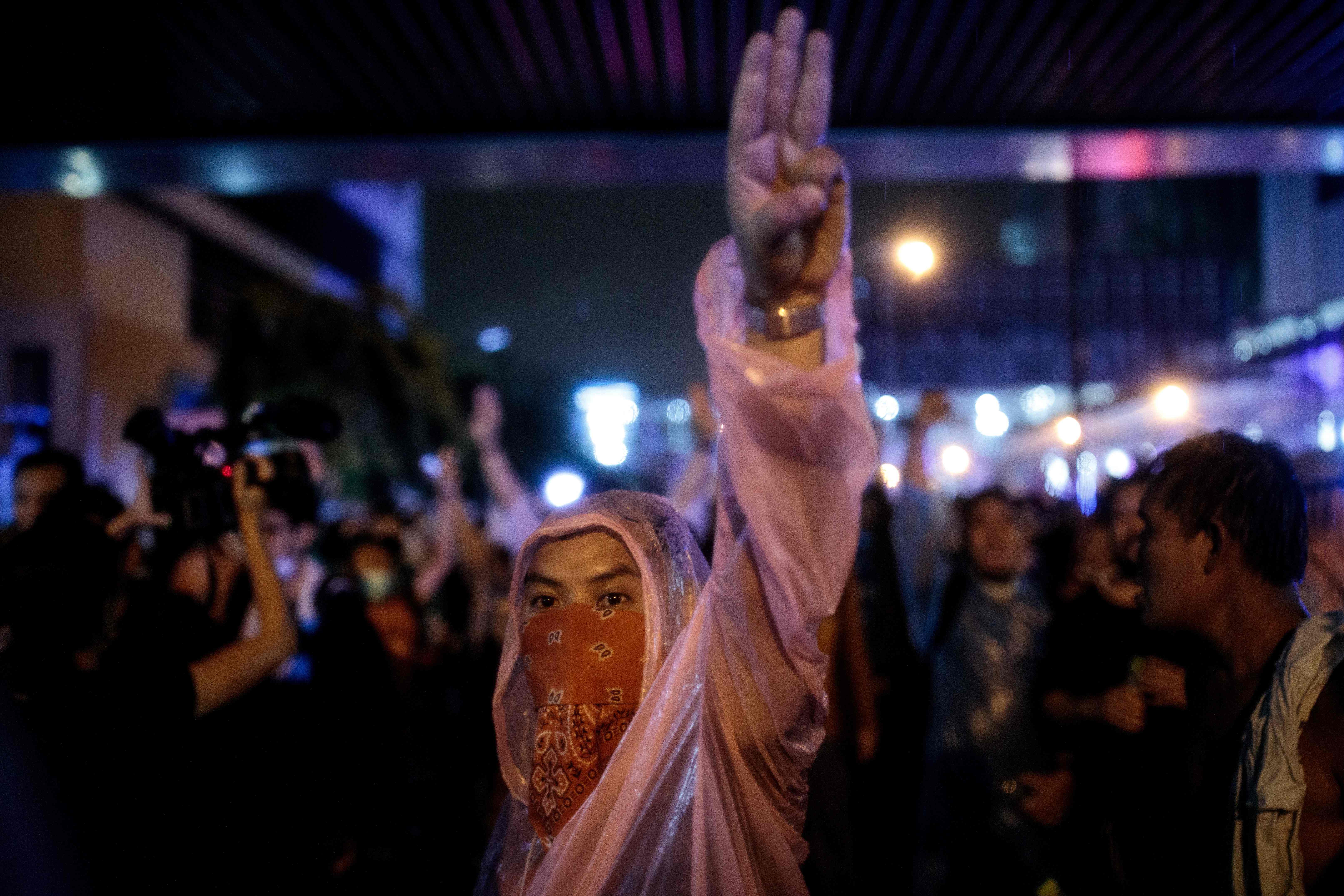Why are Thailand's citizens protesting against their government and monarchy?
Protesters call for reform of country’s constitution and resignation of prime minister

Thousands of student-led protesters in Thailand have rallied in the capital of Bangkok for a second day in defiance of a strict state of emergency imposed due to demonstrations against the country’s prime minister and monarchy.
Protesters gathered in torrential rain on Friday to call for change in the country, demanding the resignation of prime minister Prayuth Chan-ocha, amendments to Thailand’s constitution and reform of the nation’s monarchy.
Mr Prayuth has so far rejected calls for his resignation but an order for people not to gather - introduced after some demonstrators heckled a royal motorcade - has not quelled the protests.
The anger directed at Thailand’s government, which is led by a former military leader who staged a coup in 2014, and the country’s monarchy is not new and has been building for many months.
The latest round of demonstrations came after months of protests demanding a new constitution to give people more freedom and ensure civil rights are protected.
Here is why people are protesting in Thailand right now:
What are the protests about?
Although there has been dissatisfaction building against Thailand’s government in recent years, the initial trigger for the protests was the dissolution of the country’s opposition - the pro-democracy Future Forward party - in February 2020 by a court order.
The first round of protests came to an end following the introduction of coronavirus restrictions on gatherings.
In June, a prominent pro-democracy activist Wanchalearm Satsaksit went missing in an incident which is thought to have been orchestrated by Thai authorities, heightening tensions in the country.
Another round of protests began one month later and demonstrations have been regularly taking place since mid-July.
Protestors have called for the resignation of Mr Prayuth, a new constitution which ensures more freedoms and civil rights, an end to the intimidation of rights activists and a reduction in the influence of the monarchy.
What is the problem with Thailand’s monarchy?
The anger against Thailand’s monarchy is in part due to strict laws which prohibit defaming or insulting members of the royal family.
Section 112 of the country’s penal code states that whoever defames, insults or threatens the King, the Queen, the heir-apparent or the Regent, can be punished with imprisonment of between three to 15 years.
Maha Vajiralongkorn, the current King of Thailand, is also unpopular due to the wide range of powers and wealth he has gained since taking to the throne in 2016.
The king oversaw changes to the constitution which gave him emergency powers and allowed him to take direct command of several army units.
In addition, he has been criticised for having four wives and a royal consort, while polygamy is not allowed in the country.
Why are people against the military-backed government?
Protesters have argued that Mr Prayuth, who led the 2014 coup which toppled the elected government, was unfairly returned to power in last year’s general election because laws were changed to favour the pro-military party.
Human rights groups have also warned that political opponents of the government face harassment, suppression and prosecution, with dissident views often censored in the country.
Join our commenting forum
Join thought-provoking conversations, follow other Independent readers and see their replies
Comments



Bookmark popover
Removed from bookmarks